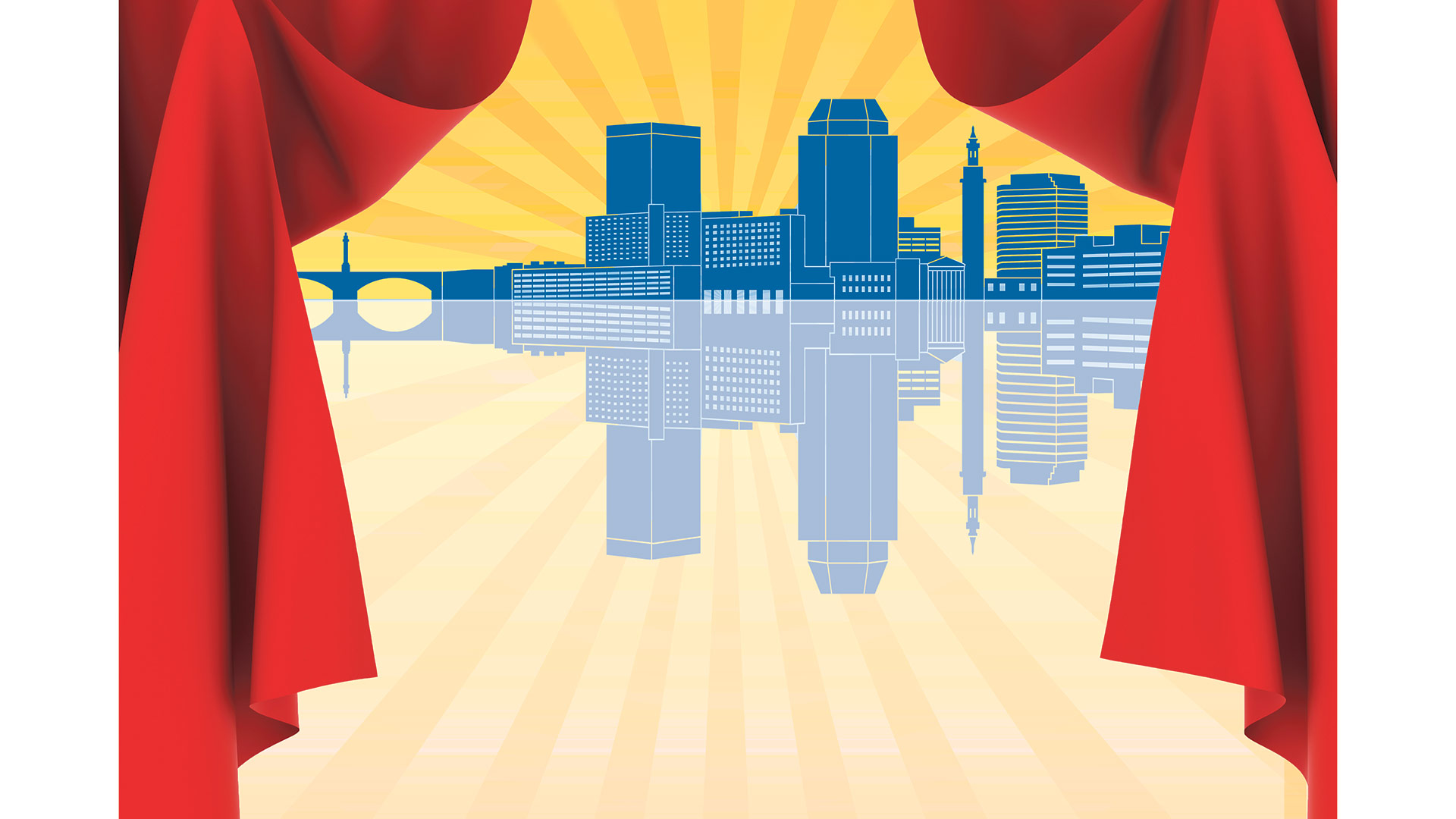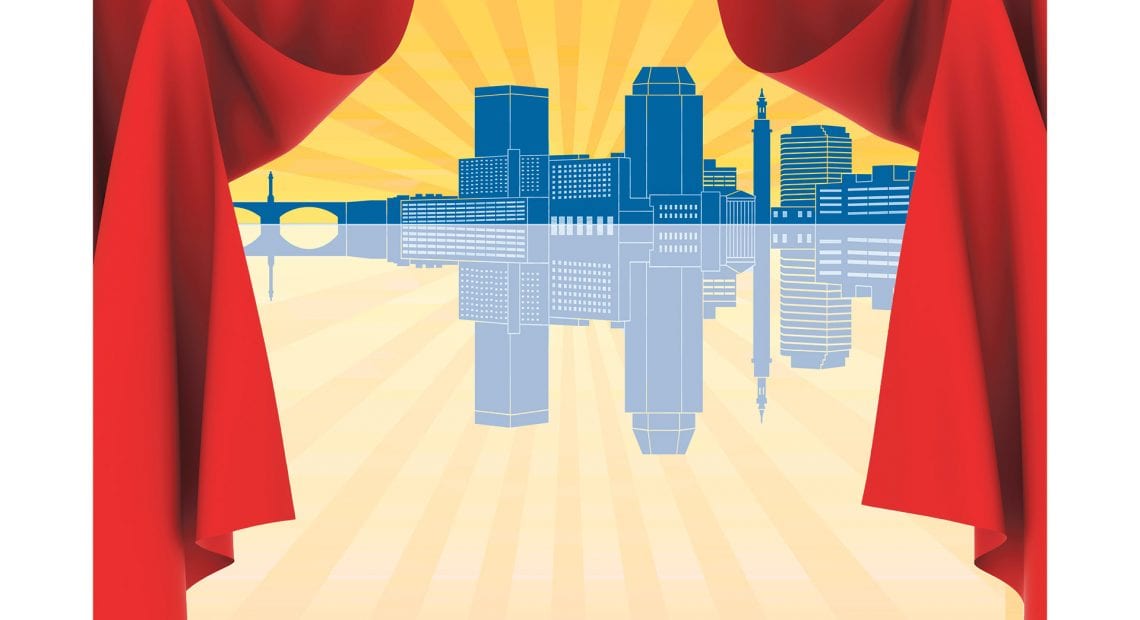Analysis
By George O’Brien
As the Commonwealth begins the arduous task of turning its economy back on, the complicated situation conjures images from a scene in the movie Apollo 13.
That movie chronicled what became known as the ‘successful failure’ of that ill-fated flight to the moon almost exactly 50 years ago. Those familiar with the story know that, just over halfway to the moon, an explosion damaged the Odyssey spacecraft’s service module. Long story short, the crew had to abandon the Odyssey for the lunar landing vehicle Aquarius, and subsisted there while those at NASA figured out a way to get the crew home.
 To get back to Earth safely, those at NASA had to eventually figure out a way to somehow start up the command module, which had been sitting idle for days, without power, in temperatures far below zero. If you’ve seen the movie, you remember a scene where one of the crew members, frustrated by the slow movement on a firm plan to restart the spacecraft, muttered ‘they don’t know how to do it’ to his colleagues.
To get back to Earth safely, those at NASA had to eventually figure out a way to somehow start up the command module, which had been sitting idle for days, without power, in temperatures far below zero. If you’ve seen the movie, you remember a scene where one of the crew members, frustrated by the slow movement on a firm plan to restart the spacecraft, muttered ‘they don’t know how to do it’ to his colleagues.
At this precarious moment in history, many in the Commonwealth are tempted to say the same thing. Like the Odyssey, the state’s economy has been essentially frozen for several weeks now. Unthawing and restarting it will be a complicated process, and, just as with Apollo 13, there is no shortage of Ph.D.s working on the problem and trying to find a solution.
And, just as with that flight, there is obviously a lot at stake. With Apollo 13, it was three lives. With this pandemic … well, according to a report from the Massachusetts High Technology Council, the jobs of at least 40% of workers making less than $40,000 a year are at risk. Already, nearly 25% of the state’s workers have filed for unemployment benefits over the past six weeks. That’s right — close to one worker in four has sought relief. And the numbers could go higher still.
“It will be different, and it will be different for quite some time. Anyone who still believes a switch can be flipped and we can go back to where we were is sadly mistaken.”
Suffice it to say this will be an extremely complicated process, and those undertaking it have to get it right. If they go too fast or move improperly, a setback will likely prove even more devastating for the state’s economy — an economy that was, as we all know, humming right along.
Indeed, just a few short months ago, the Boston-area economy was absolutely bursting at the seams. Cranes were everywhere, major corporations were moving to the city, and people were looking to high-speed rail as a way to somehow possibly relieve the congestion, sky-high prices, and intolerable commutes that were defining life inside Route 128.
It seems like those public hearings in downtown Springfield on high-speed rail options were years ago, not several weeks ago.
And the same can be said of the employment picture across the state and even here in Western Mass. It was only a few months ago that we were all talking about the skills gap and how companies with vacancies couldn’t fill them. The word ‘ghosting’ became part of the vocabulary, a term used, in some instances, to describe someone who, between the time they were offered a job and was scheduled to start, found something better. Every employer had a ghosting story — or several of them.
Not to carry the Apollo 13 analogy too far (too late), but the state’s economy was absolutely soaring, a rocket ship bound for new heights. And then … the explosion.
Now, the task at hand is to restart the economy and get people back home, to where they were. But that’s where the analogy ends. Home is much different than it was when we left, and there’s no just going back to it.
The return to something approaching normal, or a new normal, will be slow, as in painfully slow, and gradual. It will be to workplaces where people wear masks, work at least six feet apart, and get tested for the virus regularly. It will be to a casino where the slot machines are spaced widely, one might use a long, plastic stick to press buttons on those slots, and where thermal cameras monitor the temperature of patrons. It might well be a phased-in return where those who are older and most vulnerable, as well as those most able to work remotely, return last. It will be to a business community where the vast majority of ventures are simply fighting for their lives.
It will be different, and it will be different for quite some time. Anyone who still believes a switch can be flipped and we can go back to where we were is sadly mistaken. This is made clear by the stubbornly high numbers concerning cases and deaths in Massachusetts, and the fact that, just a few days ago, the governor ordered people to wear masks in public.
The state has to find a way to reopen the economy — it can’t stay closed much longer — and also keep people safe, not overwhelm the healthcare system, and not present a scenario where we take one step forward and two or three back.
Apollo 13 had a happy ending — even if the crew didn’t get to moon. But this isn’t a movie, and we don’t know how it’s going to end.
George O’Brien is the editor of BusinessWest






 To get back to Earth safely, those at NASA had to eventually figure out a way to somehow start up the command module, which had been sitting idle for days, without power, in temperatures far below zero. If you’ve seen the movie, you remember a scene where one of the crew members, frustrated by the slow movement on a firm plan to restart the spacecraft, muttered ‘they don’t know how to do it’ to his colleagues.
To get back to Earth safely, those at NASA had to eventually figure out a way to somehow start up the command module, which had been sitting idle for days, without power, in temperatures far below zero. If you’ve seen the movie, you remember a scene where one of the crew members, frustrated by the slow movement on a firm plan to restart the spacecraft, muttered ‘they don’t know how to do it’ to his colleagues.
